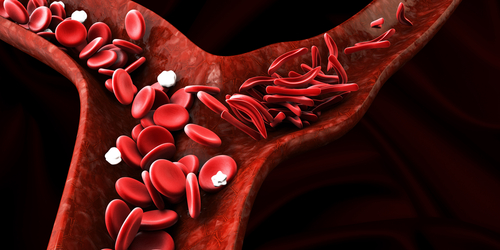Most U.S. Residents Support Human Genetics Research, Online Poll Says

A recent survey found that U.S. residents are largely interested in and support continued research into the role of human genetics in treating and possibly curing illnesses such as sickle cell disease (SCD).
Commissioned by the American Society of Human Genetics (ASHG) in partnership with Research!America, the online survey consisted of 1,100 adults plus another 775 for minority population oversampling. It was conducted in December by Zogby Analytics.
Among the key findings are that most Americans are curious and hopeful about genetics, and largely supportive of federal funding for genetics research. In addition, most citizens believe that genetics research is important to improving family health, and that more study is needed.
The survey also found that consent and privacy are important concerns for participation in this kind of research, and that most Americans have misconceptions about some areas of human genetics. Most respondents were also unfamiliar with promising areas of research such as precision medicine.
Some survey answers were informed by the ancestry and ethnic background of the respondents.
“When it comes to human genetics, the U.S. public is supportive of research, believes more research is needed, and believes it’s important to national health and their families’ health,” Anthony Wynshaw-Boris, MD, PhD, ASHG president, said in a press release.
“It’s exciting how curious and hopeful Americans are about this fast-paced area of research. That said, the survey shows there is still important work to do in educating the public on some genetics basics and how it might benefit them through applications like personalized medicine. It is rewarding to know they would participate in research that could help themselves or a loved one, but they also want assurances about privacy and confidentiality of that research.”
According to the survey, Americans largely believe that genetics will lead to cures for some diseases, and that physicians are able to use genetic data to inform patients’ healthcare. They also believe that individuals who undergo genetic testing will learn “surprising information” about their heritage, and that it will be possible to change genes in embryos to prevent severe disorders such as SCD, cystic fibrosis, or muscular dystrophy.
Thirteen percent of respondents reported having taken a direct-to-consumer genetic test, while 8% said that they were tested through a hospital or research center. Five percent had received genetic counseling, and the same percentage participated in research requiring a blood or saliva sample.
“Lower awareness and higher skepticism among underserved populations reflect legitimate historic experience with research that we need to understand, and the need to improve engagement with diverse populations,” Wynshaw-Boris added.
“Overall, the poll confirms that more can be done to reinforce the progress and potential of genetics research, while also educating the public about rigorous privacy practices and laws already in place for U.S. federal research, and our growing ability to evaluate risks or resilience for common conditions such as heart disease, dementia, diabetes or mental illness.”
In SCD, scientists are working on two different gene therapy strategies — both involving altering the patient’s own hematopoietic stem cells — with several ongoing trials. Recently, a potential gene therapy known as ARU-1801 was designated an orphan product by the U.S. Food and Drug Administration, a status that helps to speed development.
Sickle cell disease is a disorder caused by a mutation in the HBB gene, which provides instructions for producing part of hemoglobin, the protein in red blood cells that carries oxygen.
The main advantage that gene therapy has over bone marrow transplantation — currently the sole SCD cure — is that complications such as finding the right match are not a concern.
“Time and again, the public tells us they value medical research,” said Mary Woolley, Research!America’s president and CEO. “Americans believe in the hope research presents to improve the health and well-being of individuals, families and communities.”
In coming months, the ASHG will ramp up public messaging about the value of, and issues related to, human genetics.
“It is an exciting time for human genetics and genomics, and emerging knowledge is speeding discovery and applications in research, medicine and society,” Wynshaw-Boris said.






